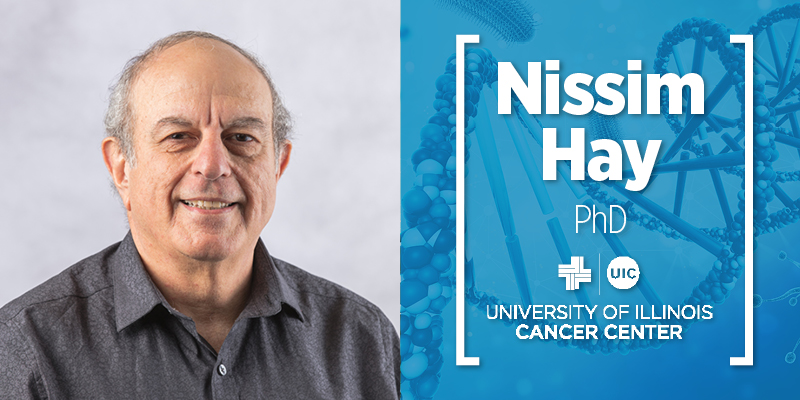
Akt is one of the most frequently stimulated oncoprotein in human cancers and whose activation often elicits chemoresistance, making it a promising target for treatment. However, there are three Akt isoforms, and it is unclear which one of them, either individually or in combination, could be inhibited systemically for cancer therapy without severe adverse consequences.
Akt, also known as protein kinase B, is a key element of the PI3K/AKT signaling pathway that regulates the characteristics of cancer such as tumor growth, survival and invasiveness of tumor cells. Since its discovery in the early 1990s, Akt studies revealed that the three different isoforms of the serine/threonine kinase – AKT1, AKT2 and AKT3 – is encoded by three separate genes.
Despite their similarities, the distinct AKT isoforms exert non-redundant and somewhat opposing effects under physiological and pathological conditions. Breast cancer, the most common cancer in women, frequently shows alterations of the PI3K/AKT signaling.
In a new study published in the journal Molecular Cell, Nissim Hay, PhD, distinguished professor of biochemistry and molecular genetics at the University of Illinois College of Medicine and co-leader of the Cancer Biology program at the University of Illinois Cancer Center, has discovered profound differences between cell autonomous and systemic Akt1 or Akt2 deletion on breast cancer tumorigenesis and metastasis.
Hay’s approach was vastly different from previous studies, as those used germline deletions of Akt isoforms that did not emulate drug therapy, since the mice were born with deletions that could have potential developmental impacts on tumorigenesis. Hay and his colleagues employed a comprehensive approach in examining the roles of Akt1 and Akt2 in mammary gland tumor initiation, progression, and metastasis to understand their therapeutic implications.
“My laboratory has been investigating the PI3K/Akt signaling pathway at the cellular and organismal level for the past 24 years,” Hay said. “We have generated Akt isoforms knockout mice and analyzed their phenotypes and susceptibility to cancer. We are providing genetic proof of concept for cancer therapy by systemically deleting the individual Akt isoforms in mouse models of cancer after tumor onset to emulate drug therapy.”
Conducting research using three mouse models, Hay discovered that the systemic Akt1 deletion inhibits breast cancer tumor growth and metastasis. However, systemic deletion of Akt2 does not inhibit, and even exacerbates, breast cancer tumor growth and metastasis, since the systemic deletion of Akt2 following the formation of the tumor elicits insulin resistance and high circulating levels of the hormone found in the pancreas.
Treating the tumor with an anti-diabetic drug that reduced its insulin level improved the effect of systemic Akt2 deletion on its growth, Hay said.
“Surprisingly, the effect of systemic Akt1 deletion on breast cancer metastasis is not due to the effect on tumor cells but to impaired survival and mobilization of pro-metastatic neutrophils,” he said. “These results suggest that Akt1 specific inhibition could inhibit breast cancer metastasis regardless of the origin of the primary tumor.”
Breast cancer is the most common cancer in American women, except for skin cancers, according to the American Cancer Society. Currently, the average risk of a woman in the United States developing breast cancer sometime in her life is about 13%, meaning there is a one in eight chance she will develop breast cancer. It also means there is a seven in eight chance she will never have the disease.
The ACS estimates that 71,990 new cases of breast cancer will be recorded in 2020 in Illinois, with an estimated 24,200 people dying from the disease. Nationally, the ACS estimates that 279,100 new cases of the disease will be recorded this year, with 42,690 deaths.
Hay’s latest study has produced two important therapeutic implications. First, he said, it is important to develop inhibitors that preferentially inhibit Akt1 and not Akt2. Wonhwa Cho, PhD, Liberal Arts and Sciences Endowed Chair, UIC distinguished professor and head of UIC’s chemistry department, as well as a member of the UI Cancer Center’s Cancer Biology program, is collaborating with Hay’s team to generate Akt1 specific inhibitors. Secondly, hyperglycemia and high insulin levels were also observed in cancer patients treated with pan-PI3K and pan-Akt inhibitors.
“Our results in mice showed that this is due to the inhibition of Akt2, and that the high insulin levels curb the efficacy of pan-PI3K and pan-Akt inhibitors,” Hay said. “And lastly, treatment of breast cancer patients with Granulocyte-Colony Stimulating Factor, which helps white blood cells recover after chemotherapy, should be avoided, as it promotes pro-metastatic neutrophils.”
Co-authors on the study include: Xinyu Chen, PhD, Majd M. Ariss, PhD, Gopalakrishnan Ramakrishnana, PhD, Veronique Nogueira, PhD, Catherine Blaha, PhD, William Putzbach, PhD, and Maxim Frolov, PhD, all of UIC; and Abul B.M.M.K. Islam, University of Dhaka, Dhaka, Bangladesh.
